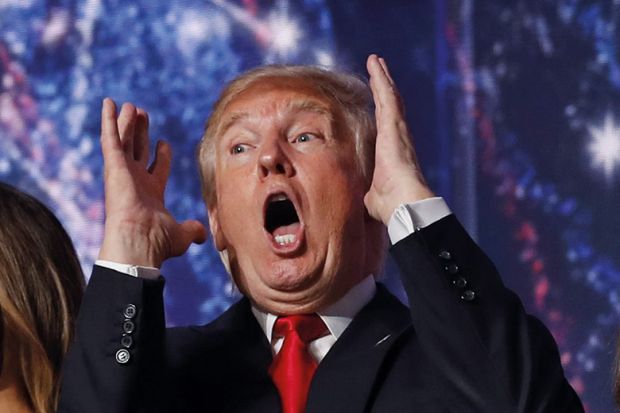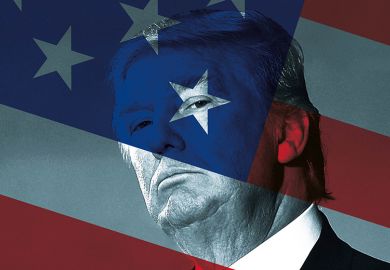“I’ll leave it to the psychiatrists to explain [Donald Trump’s] affection for tyrants,” Hillary Clinton said in a speech last June, commenting on Mr Trump’s apparent admiration of North Korean dictator Kim Jong-un's leadership skills.
But as Mr Trump embarks on his role as “leader of the free world”, should academics working in the field speak up if they have concerns about his state of mind?
After Fact magazine published an article during the 1964 presidential race suggesting that most psychiatrists considered Republican candidate Senator Barry Goldwater unfit for office, the American Psychiatric Association introduced the “Goldwater rule”; recommending that psychiatrists avoid diagnosis without interview.
“We shouldn’t use our technical expertise to comment on people who we don’t know, and with people who we do know, we can’t by law anyway,” said Sir Simon Wessely, the outgoing president of the Royal College of Psychiatrists. “I think it brings us into disrepute.”
There have been high-profile analyses of Mr Trump’s personality by academics. One, in The Atlantic last year, followed a three-month investigation by Dan McAdams, a professor of psychology at Northwestern University.
“We all know people who display his trait profile; a combination of extraordinary social dominance and aggressiveness,” Professor McAdams told Times Higher Education. “But what makes him remarkable to me is the possibility that that’s all there is. I think what other people find extraordinary about him is his narcissism […] he may be the most narcissistic man on the planet.”
In his analysis of Mr Trump’s personality, Professor McAdams does not suggest any diagnosis, arguing that his personality is more noteworthy.
“If you want to find a reason to be worried about Donald Trump, you don’t need to offer a medical diagnosis. Watch him in his press conferences or think about his inability to control his behaviour, or think about his authoritarian followers and how he hopes to go beyond all these institutions of government […]this is a man who threatens the separation of powers.”
There is a difference between a psychologist’s assessment – which may be based on public behaviour – and a psychiatrist’s diagnosis, which may not. Some psychiatrists, however, argue that the Goldwater rule is overly restrictive, and Mr Trump’s election may have strengthened this view.
“The public behaviours and utterances of many public figures are more than sufficient to suggest a diagnosis,” said Jerome Kroll, emeritus professor of psychiatry at the University of Minnesota and author of a 2016 article in The Journal of the American Academy of Psychiatry and Law criticising the restrictions. Professor Kroll argues that diagnosis without interview is not unusual; such as in medical malpractice cases.
“What psychiatry should try to avoid is a spiralling up of insults towards candidates under the camouflage of learned opinions. However, if we think someone is dangerous, not just offensive, then all have the right, and maybe the moral and patriotic obligation, to speak up.”
POSTSCRIPT:
Print headline: Trump: pathology or personality?
Register to continue
Why register?
- Registration is free and only takes a moment
- Once registered, you can read 3 articles a month
- Sign up for our newsletter
Subscribe
Or subscribe for unlimited access to:
- Unlimited access to news, views, insights & reviews
- Digital editions
- Digital access to THE’s university and college rankings analysis
Already registered or a current subscriber?






